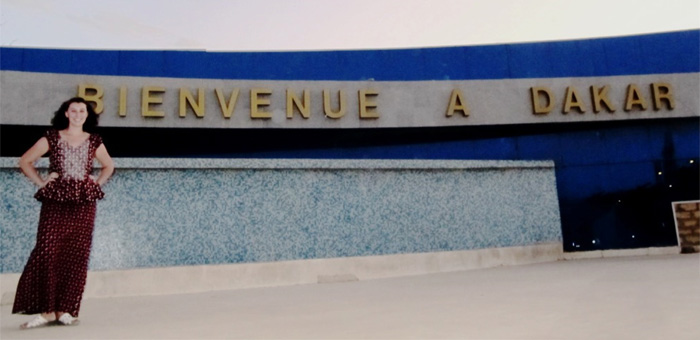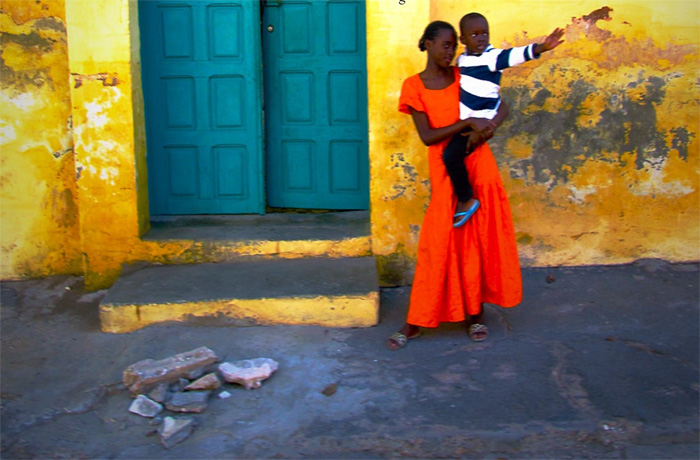Erica White writes about her study abroad experience in Dakar, Senegal.
This past semester, I studied abroad in Dakar, Senegal under the umbrella “Development Studies” program through CIEE. While there, I lived with a local host family and studied topics including public health, environmental practices in developing countries, and African politics. I also had an internship with a local NGO that works with neglected and abused children. One of my main programs was translating an informational booklet on Ebola from French to English and, later, into Wolof (one of the local languages).

Photo Credit: Erica White
Whenever anybody asks me about my experience studying abroad, I don’t know how to adequately express how life-changing it was. Not only did I learn just how much I take Western comforts for granted, but I also learned how much I really don’t need them to begin with. It was surprising how quickly I adjusted to a “new normal” of living with a host family, with little access to electricity or running water. My host family spoke Wolof and Jola, and only a few of my host siblings spoke fluent French. No one in my new family spoke any English, but I quickly learned enough Wolof for conversation.
While abroad, I also lived with a current Peace Corps volunteer in Matam, on the border of Mauritania. There, I shadowed a volunteer who worked in the health sector, and I was able to visit a local middle school where I talked to some of the girls who were being awarded a scholarship through Peace Corps. I was beyond impressed with how integrated the volunteers were in their host communities, and it inspired me to apply for the Peace Corps myself.
Out of the many life lessons I learned from my time in Senegal, I would say that the most important one would be understanding that the “West” has a completely inaccurate view of Sub- Saharan Africa as a whole. Before I left, whenever I told anyone that I would be studying abroad in Senegal, their initial reactions were along the lines of “Why Africa?” and “Is it safe there?”. Many people have a skewed perception of Americans going to Africa primarily to “help” but I was in Senegal with the sole purpose of being in an academically challenging environment and being able to experience things that I would not have been able to experience if I stayed in the United States.
In my own small way, I want to encourage people to stop having this perception of going to Africa. Senegal is only a small microcosm of the overall continent, and while there are certainly shortfalls within the country, for the most part, Senegal is fully capable of solving its own problems. I saw with my own eyes the detrimental cycle that simply giving aid can be, and I encourage people to take a stance similar to the Peace Corps when discussing Africa as a whole: you must become an ingrained member of the local society and work together with local communities to collaborate and find innovative solutions.
Senegal is a vibrant country with rich cultural traditions and strong communal ideals, but daily life there is not surprisingly distinct from daily life in the West. I gained a new appreciation for some of the traditions we have here in the United States, but I also opened my eyes to new ways of thinking, and I met some really great people along the way. I encourage other students to consider studying abroad in Senegal or other countries in Africa so we can communally begin to see Africa in a new, more well-rounded light.

Photo Credit: Erica White
For further information, please contact:
Todd Wilson
Strategic Communications Director
p – 516.237.8634
e – twilson@adelphi.edu